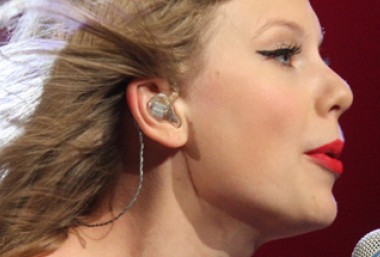Does a scorpion sting when fighting back? Yes, according to the lyrics of the Taylor Swift song Mad Woman and a theme park in the United States, which has been stung in an ongoing intellectual property (IP) battle with the global megastar.
Utah-based Evermore Park filed a lawsuit against Swift and her company TAS Rights Management shortly after the release of her latest studio album Evermore. Evermore Park has accused Swift of infringing Evermore Park’s trade mark rights by naming her album Evermore and using the name on merchandise. Evermore Park is also opposed to Swift’s “use of explicit lyrics and marketing of goods using vulgar terms”, such as a mug emblazoned with the lyric “fancy sh-t”.
Evermore Park owns a number of trade mark registrations in the US, including for EVERMORE. These registrations cover a range of products and services, including clothing and entertainment services. Evermore Park is asking for US$2 million in damages for each of the trade marks that it alleges Swift has infringed.
Swift’s attorneys are vigorously defending the lawsuit and have slammed Evermore Park’s allegations as baseless, arguing “it is inconceivable that there is any likelihood of confusion between your client’s theme park and related products and Ms. Swift’s music and related products”.
Here comes the plot twist. The day after Evermore Park filed its lawsuit, Swift’s attorneys are alleged to have been approached by a former Evermore Park employee - and no doubt Taylor Swift fan – with information regarding the routine unlicensed public performance of Swift’s music within the theme park. Swift has now filed a counter lawsuit against Evermore Park claiming copyright infringement. Swift is suing the park for illegally performing her music for years without paying the appropriate license fee.
Taylor’s swift(!) legal response isn’t too surprising given her track record advocating for artists’ and musicians’ rights. She has strong-armed music streaming platforms to implement policy changes that ensure fair compensation for artists. However, Swift is also known for handling IP issues sensitively. Last year, concerns were raised by an African American fashion brand The Folklore around the use of “Folklore”, the name of Swift’s eighth studio album. To resolve the issue, Swift made changes to her merchandise, paid money to The Folklore and donated to Black in Fashion Council, an organisation that promotes the advancement of black individuals in the fashion industry.
The more hostile reaction to Evermore Park’s lawsuit may be in response to what Swift perceives is an opportunistic money grab. It is fair to speculate that Evermore Park assumed Swift would settle quickly with a large payout. Interestingly, while Swift’s copyright lawsuit includes a claim for damages, it doesn’t specify an amount.
It is likely the dispute will be settled out of court. No doubt money will change hands. Assuming confidentiality agreements are signed, we may never know how much and to whom. But for every cause Swift gets behind, legal or otherwise, we know she will continue to keep her fans (and her lawyers) very happy.




















